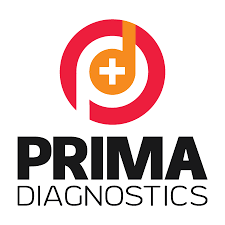What Is A CBC Test?
A CBC test is a Complete Blood Count test. It is a blood test that measures various components of your blood, including red blood cells, white blood cells, and platelets. The test provides important information about your overall health, as well as helps diagnose various medical conditions such as anemia, infection, and inflammation. The test is usually performed as part of a routine health checkup or when a person has symptoms that may indicate a blood disorder.
Why Is A CBC Test Important?
A CBC test is important because it provides valuable information about different components of your blood and can help detect a wide range of medical conditions. Some of the key reasons why a CBC test is important are:
-
Anemia detection: The test measures the number of red blood cells in your blood and their average size, which can indicate whether you have anemia.
-
Infection detection: The test measures the number of white blood cells in your blood and their types, which can help detect an infection or inflammation.
-
Blood disorders: The test can help diagnose various blood disorders such as leukemia, a type of blood cancer, or thrombocytopenia, a condition in which you have a low number of platelets.
-
Monitoring chronic conditions: If you have a chronic condition such as kidney disease or liver disease, your doctor may order a CBC test to monitor your health and to check for any changes in your blood.
-
Pre-surgery check: A CBC test is often performed before surgery to make sure that you have enough healthy blood cells to undergo the procedure.
In short, a CBC test provides a snapshot of your blood and can help detect and monitor a range of health conditions. It is an important tool for maintaining your overall health.
When Is A CBC Blood Test Done?
A CBC blood test is often ordered as part of a routine medical examination or as part of a comprehensive health evaluation, especially if you have symptoms that might indicate a blood disorder or infection. Some common reasons for having a CBC test include:
-
Regular health check-up: A CBC test is often done as part of a routine physical examination to monitor your overall health.
-
Symptoms of anemia: If you have symptoms such as fatigue, weakness, shortness of breath, or pale skin, your doctor may order a CBC test to check for anemia.
-
Symptoms of infection: If you have symptoms such as fever, chills, or a sore throat, your doctor may order a CBC test to check for an infection and to determine if your white blood cell count is elevated, which can indicate an active infection.
-
Monitoring of chronic medical conditions: If you have a chronic medical condition such as cancer, HIV, or a blood disorder, your doctor may order regular CBC tests to monitor your blood cell counts and overall health.
-
Pre-surgery evaluation: A CBC test may be done before you have surgery to ensure that you have a normal blood cell count and to minimize the risk of bleeding during the procedure.
It’s important to talk to your doctor about when you might need a CBC test and what the results might mean for your health.
What Are The Parameters Covered?
The parameters typically covered in a Complete Blood Count (CBC) test include:
-
Red Blood Cells (RBCs) count: This measures the number of red blood cells in a given volume of blood and is used to diagnose conditions such as anemia, where there is a low red blood cell count, or polycythemia, where there is an elevated red blood cell count.
-
Hemoglobin (Hb) level: This measures the amount of hemoglobin in the blood and is used to diagnose anemia and to monitor the treatment of anemia.
-
Hematocrit (Hct) level: This measures the proportion of red blood cells to the total volume of blood and is used to diagnose anemia and to monitor the treatment of anemia.
-
Mean Corpuscular Volume (MCV): This measures the average size of red blood cells and is used to diagnose different types of anemia.
-
Mean Corpuscular Hemoglobin (MCH): This measures the average amount of hemoglobin in a red blood cell and is used to diagnose different types of anemia.
-
Mean Corpuscular Hemoglobin Concentration (MCHC): This measures the average concentration of hemoglobin in a red blood cell and is used to diagnose different types of anemia.
-
White Blood Cells (WBCs) count: This measures the number of white blood cells in a given volume of blood and is used to diagnose and monitor infections, inflammation, and certain types of cancer.
-
Platelet (Plt) count: This measures the number of platelets in a given volume of blood and is used to diagnose and monitor conditions such as thrombocytopenia (low platelet count), which can cause excessive bleeding, and thrombocytosis (elevated platelet count), which can increase the risk of blood clots.
It’s important to keep in mind that these are the general parameters included in a CBC test and the exact parameters measured may vary depending on the context and the specific requirements of the test.
How Is A CBC Test Performed?
A Complete Blood Count (CBC) test is a simple and quick blood test that is typically performed as follows:
-
Preparation: You do not need to fast or prepare in any special way for a CBC test. However, you may need to stop taking certain medications that can affect your blood cell counts, such as blood thinners, before the test. Your doctor will advise you on this.
-
Blood draw: A healthcare provider will take a sample of your blood, usually from a vein in your arm, using a needle. The blood is then collected in a tube for testing.
-
Analysis: The blood sample is sent to a laboratory for analysis, where the different elements of your blood, including red blood cells, white blood cells, hemoglobin, and platelets, are measured using automated machines.
-
Results: The results of the CBC test are usually available within a day or two and are reported in a numerical format, along with the reference range for each parameter. Your doctor will interpret the results and explain what they mean for your health.
The CBC test is a safe and painless procedure that typically takes only a few minutes. After the test, you may have some mild bruising or swelling at the site where the blood was drawn, but this usually goes away quickly.
Is There Any Preparation Required For The Test?
No special preparation is usually required for a Complete Blood Count (CBC) test. However, it is important to inform your doctor about any medications you are taking, as some medications can affect your blood cell counts and may need to be stopped before the test. Your doctor will advise you on this.
In general, you should wear comfortable clothing that allows easy access to your arm for the blood draw. You may want to avoid drinking caffeinated or alcoholic beverages before the test, as these can affect your blood cell counts. You can eat and drink as usual before the test.
It’s important to keep in mind that the requirements for the test may vary depending on the reason for the test and the specific needs of the test. Your doctor will provide you with the necessary instructions and information.
What Does The Test Result Mean?
The results of a Complete Blood Count (CBC) test provide information about the different components of your blood, including red blood cells, white blood cells, hemoglobin, and platelets. The results are usually reported in a numerical format, along with the reference range for each parameter. The reference range is the range of values considered normal for a healthy person of your age, gender, and other factors.
The results of the CBC test can help diagnose and monitor various medical conditions, such as anemia, infections, inflammation, blood disorders, and certain types of cancer. Here are some common conditions that can be indicated by the CBC test results:
-
Anemia: Anemia is a condition in which you have a low red blood cell count, low hemoglobin levels, or low hematocrit levels. This can result in a decreased ability of your blood to carry oxygen to your body’s tissues.
-
Infections: A high white blood cell count can indicate the presence of an infection. The type of white blood cell involved can also provide information about the type of infection.
-
Inflammation: A high white blood cell count can also indicate inflammation, which can be caused by various medical conditions, such as arthritis or inflammatory bowel disease.
-
Blood disorders: Abnormal results in the CBC test can indicate the presence of a blood disorder, such as leukemia, which is a type of cancer that affects the blood and bone marrow.
-
Platelet disorders: A low platelet count (thrombocytopenia) can indicate that you have a condition that is affecting the production of platelets in your bone marrow or that your platelets are being destroyed. A high platelet count (thrombocytosis) can indicate the presence of a medical condition, such as cancer or a blood clotting disorder.
It’s important to keep in mind that the CBC test results are just one aspect of your overall health, and that they need to be interpreted in the context of your medical history, physical examination, and other test results. Your doctor will interpret the results of your CBC test and explain what they mean for your health.




Reviews
There are no reviews yet.